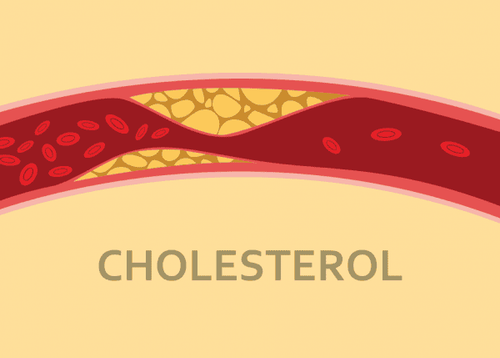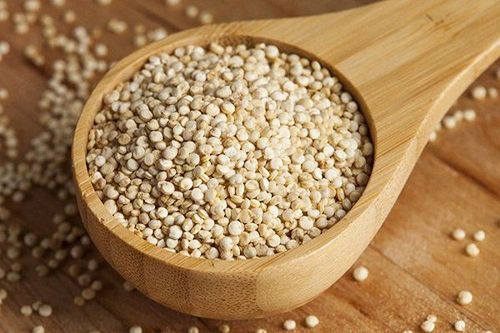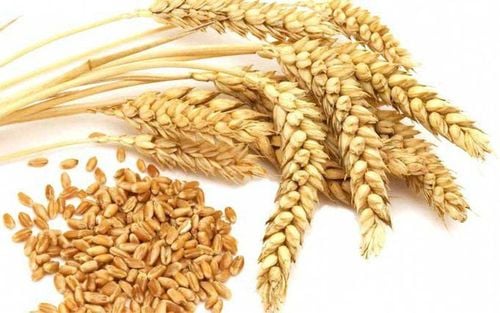This is an automatically translated article.
Barley is one of the most widely consumed grains worldwide, especially in the United States. This versatile nut usually has a slightly acrid taste and is similar to the smell of chestnuts, which can be easily combined with many different dishes. So what is the use of the circuit?
1. Barley is rich in essential nutrients
Barley is a food that contains many vitamins, minerals and other beneficial plant compounds. It is commonly used in a variety of forms, including whole barley, raw barley, hulled barley, and barley flour. Most forms of barley use the whole grain, with the exception of pearl barley, which has been polished to remove the bran along with the outer skin.
When consumed as a whole grain, barley is an excellent source of fiber, manganese, molybdenum and selenium. In addition, it also contains large amounts of copper, vitamin B1, phosphorus, chromium, magnesium and niacin. In addition, barley is also rich in lignans, a group of antioxidants that significantly reduce the risk of cancer and cardiovascular diseases. However, like all other whole grains, barley contains antinutrients, which affect the digestive system and the body's ability to absorb nutrients. To reduce the anti-nutrient content, you can soak and sprout barley seeds, which also makes the nutrients of barley easier to absorb into the body.

Lúa mạch là thực phẩm giàu các chất dinh dưỡng thiết yếu
2. Barley reduces hunger and effectively loses weight
Barley can reduce hunger and promote feelings of fullness, thereby helping to lose weight effectively. The reason why barley has the ability to reduce most hunger is due to its high content of soluble fiber, called beta-glucan. This type of fiber tends to form a gel-like substance in the intestines, which slows down the body's digestion and absorption of nutrients, thereby curbing appetite and promoting satiety. friend. What's more, soluble fiber primarily targets the fatty abdomen, a condition that has been linked to metabolic disease.
3. Barley improves digestive health
Again, the high fiber content in barley has a special role in promoting gut health of the body. Most of the fiber found in barley is of the insoluble fiber type, which helps food move through the intestines easily and reduces the chances of constipation. In a 4-week study in adult women, eating more barley significantly improved bowel function and increased stool volume.
On the other hand, the soluble fiber content in barley provides a rich food source for the beneficial bacteria in the gut, which in turn produce short-chain fatty acids (SCFA). Scientists have discovered that SCFAs have the ability to nourish intestinal cells, while reducing inflammation and improving symptoms of intestinal disorders, such as irritable bowel syndrome (IBS), ulcers. colon and Crohn's disease.

Hàm lượng chất xơ cao trong lúa mạch rất tốt cho sức khỏe đường ruột của cơ thể
4. Barley prevents gallstones and reduces the risk of gallbladder surgery
The high fiber content in barley can also help effectively prevent gallstones. Gallstones are usually solid, and can form on their own inside the gallbladder, a small organ beneath the liver that helps make bile acids that the body uses to digest fats. In most cases, gallstones do not cause any symptoms. However, over time, the gallstones will grow larger and become trapped in the cystic duct, causing severe pain. When this dangerous symptom appears, the patient is required to perform cholecystectomy.
The type of insoluble fiber found in barley is effective in preventing the formation of gallstones, thereby reducing the risk of gallbladder surgery. In a 16-year study, women with the highest fiber intake were about 13% less likely to develop gallstones that required surgical intervention. In addition, this benefit also seems to be related to fiber intake, for example a 5 gram increase in insoluble fiber intake reduces the risk of developing gallstones by about 10%.
In another study, people with obesity participated in one of two diets that helped them lose weight quickly - one was high in fiber, and the other was high in protein. After 5 weeks, those on the high-fiber diet had three times more healthy gallbladders than those on the high-protein diet.
5. Barley helps lower cholesterol
Barley can also reduce the cholesterol level of the body. The beta-glucans found in barley have been shown to lower LDL cholesterol (bad cholesterol) by binding to bile acids. The body will remove the bile acids through the fecal route. The liver then has to use more cholesterol to make new bile acids, thereby reducing the amount of cholesterol circulating in your blood.

Lúa mạch cũng có thể làm giảm lượng cholesterol lưu thông trong máu
In one small study, men with high cholesterol consumed a diet rich in wheat, brown rice, or barley. After just 5 weeks, those who ate the most barley had a 7% reduction in their cholesterol levels compared to those who followed the other two diets. What's more, the barley group also experienced a significant increase in good HDL cholesterol and the greatest reduction in triglyceride levels. In addition, the amount of SCFA produced when beneficial gut bacteria eat soluble fiber can help suppress cholesterol production, as well as reduce high cholesterol levels in the blood.
6. Reduce the risk of heart disease
Most whole grains can promote heart health. Therefore, it is not surprising that regularly adding barley to the daily diet significantly reduces the risk of heart disease.
In fact, barley has the ability to prevent certain risk factors, including lowering bad cholesterol levels and reducing high blood pressure. When consuming an average of 8.7 grams of soluble fiber per day can reduce blood pressure levels by 0.3-1.6 mmHg. On the other hand, high blood pressure and high LDL cholesterol are the two leading causes of cardiovascular problems. Therefore, when these two conditions are improved, your heart will be healthier.
7. Prevents Diabetes
Regular intake of barley in the diet can reduce the risk of type 2 diabetes by reducing blood sugar levels and improving insulin secretion. This is partly due to the high magnesium content in barley, which is a mineral that plays an essential role in the production of insulin and the use of sugar by the body.
As mentioned above, barley contains a lot of soluble fiber, when moving through the digestive tract, they will bind with water and other molecules, which slows down the absorption of sugar into the bloodstream. . A breakfast of barley has the greatest reduction in blood sugar and insulin levels compared to a breakfast consisting of other grains, such as oats.

Bổ sung lúa mạch vào thực đơn giúp giảm nguy cơ mắc các bệnh tiểu đường loại 2
8. Prevents colon cancer
Following a diet rich in whole grains reduces the likelihood of chronic diseases, including some cancers, especially colon cancer.
Again, the high fiber content in barley plays a major role. Soluble fiber is especially effective in reducing the time it takes to digest food to clean the intestines, thereby protecting against colon cancer. In addition, this type of fiber can also remove harmful substances in the intestine that cause cancer.
Several other compounds found in barley, including antioxidants, phenolic acids, phytic acids and saponins help prevent and slow the progression of cancers.
9. Versatile and easy to incorporate into your daily diet
Barley is relatively inexpensive and extremely easy to incorporate into your diet. Due to its high fiber content, this food has become a great substitute for refined grains.
Besides, you can also add barley to soups, stews, salads, sandwiches, or breakfast cereals. To add uniqueness to the dish, you can add barley to desserts, such as barley pudding or barley ice cream.
Vinmec International General Hospital with a system of modern facilities, medical equipment and a team of experts and doctors with many years of experience in medical examination and treatment, patients can rest assured to visit. examination and treatment at the Hospital.
To register for examination and treatment at Vinmec International General Hospital, you can contact Vinmec Health System nationwide, or register online HERE.
Reference source: healthline.com
MORE
Does rye contain gluten? Delicious, nutritious, easy-to-eat oats recipes Health benefits of oats










